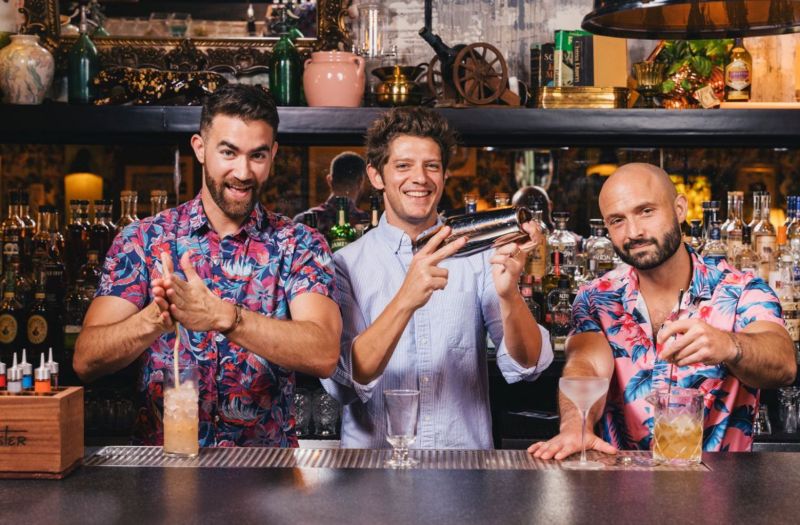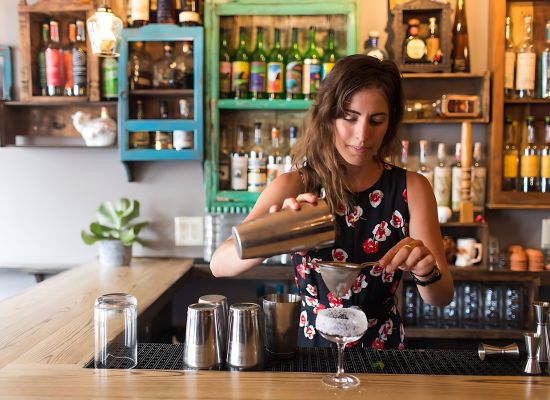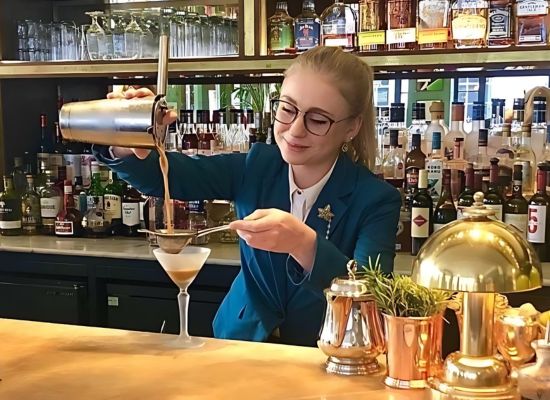Educating Bartenders Worldwide.
By Beverage Trade Network

The modern bartender is far more than a mere drink slinger; they are an essential part of a bar's identity, acting as the face of the establishment and the architect of its atmosphere. Through their cocktail choices, service style, and interactions with customers, bartenders shape the personality and reputation of the bar, making it unique and memorable. In a world where the dining and nightlife industries are as competitive as ever, the role of the bartender has evolved from a simple service provider to a cultural curator. This article delves into how bartenders contribute to the overall identity of a bar, with insights from interviews with some of the most influential figures in the industry.
Bartenders are often the first point of contact for customers, making their demeanor and approach critical to the customer’s first impression. A great bartender is not only skilled in mixing drinks but also in reading the room, understanding the vibe, and adjusting their service style accordingly. This ability to adapt and connect with patrons is what often transforms a one-time visitor into a regular. For example, Juyoung Kang, the Director of Beverage Development at Fontainebleau Las Vegas, emphasizes the importance of creating a stress-free environment. Her meticulous organizational skills and her ability to read the needs of her patrons ensure that the bar operates smoothly, providing a seamless and enjoyable experience for guests. By maintaining this high standard, she contributes significantly to the bar’s identity as a place of sophistication and relaxation.

Source: ONS
The selection of cocktails offered at a bar is a direct reflection of its identity. Bartenders who take pride in their craft often experiment with flavors, ingredients, and presentations to create drinks that not only please the palate but also tell a story. These creations can become the signature of the bar, drawing in customers who seek out these unique experiences. One prominent example is Ivy Mix, co-owner at Leyenda and Fiasco! Wine and Spirits in Brooklyn, New York. Mix has become a well-known figure in the U.S. bartending scene, particularly for her innovative approach to Latin-inspired cocktails. By integrating traditional Latin American ingredients with modern techniques, she has helped shape Leyenda’s identity as a bar that celebrates the rich and diverse flavors of Latin America. Her signature cocktails, such as the Tia Mia, a rum and mezcal blend, showcase her ability to create unique flavor profiles that have become synonymous with Leyenda’s brand. Through her creative cocktail menu and dedication to quality, Mix has not only elevated the bar’s status but also contributed to the broader cocktail culture in New York City and beyond.
The way bartenders interact with customers can make or break the identity of a bar. Whether the bar exudes a casual, laid-back atmosphere or a more formal, upscale vibe, the bartender’s approach to service is key. Bartenders who are approachable, empathetic, and entertaining can make patrons feel welcome and valued, encouraging them to return. Mike Thompson, a veteran bartender with nearly three decades of experience, emphasizes the importance of personality in bartending. He believes that bringing one’s personality to the table, while always keeping the guest at the center of attention, is crucial for creating a memorable experience. Thompson’s advice to new bartenders to be confident yet humble, and to always prioritize the guest’s experience, highlights the delicate balance that bartenders must maintain to contribute positively to the bar’s identity.

Source: The On Trade
The culture of a bar is often a reflection of its staff, particularly the bartenders who interact most with customers. Bartenders set the tone for the environment through their behavior, the way they manage the bar, and even the way they market the establishment. During the COVID-19 pandemic, for example, many bartenders played a crucial role in maintaining customer engagement through social media and personalized marketing efforts. Emilia Wrelton, Bar Manager At Sloane and Judge at the London Competitions pointed out that the pandemic pushed bartenders to become more creative and efficient, with a greater focus on guest and staff well-being. This shift has influenced the identity of bars, making them more customer-centric and responsive to the changing needs of their clientele.
Bartenders play a pivotal role in crafting the identity of a bar. Through their creativity, service style, and interaction with customers, they shape the experience that patrons associate with the establishment. Whether it’s the unique cocktails they create, the welcoming atmosphere they foster, or the way they handle the challenges of running a bar, bartenders are the heartbeat of any successful bar. As the industry continues to evolve, the role of the bartender will undoubtedly expand, further solidifying their place as key contributors to the cultural and commercial success of bars worldwide. By understanding and embracing this role, bartenders can ensure that they not only meet but exceed the expectations of their customers, leaving a lasting impression that defines the bar’s identity.
Header Image Source: Unfiltered Hospitality